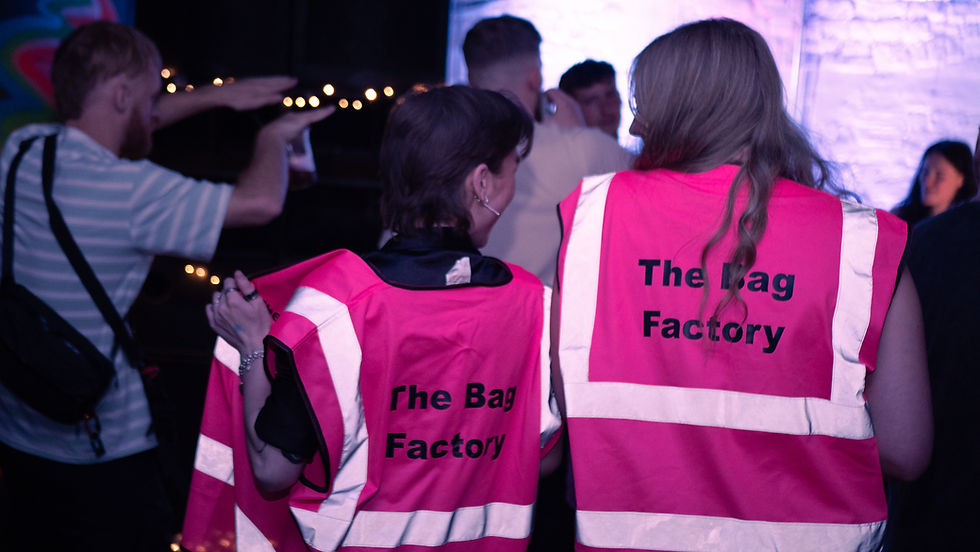From Windrush to Warehouse ~ Carnival & Sound System Culture
- Connie Cowell

- Sep 11, 2025
- 3 min read
Carnival has just been and gone, so let’s dive into the culture that brings Carnival to life…
A sound system is never just a stack of speakers. It’s a social force. When the Windrush Generation brought sound systems from the Caribbean to the UK after World War II, they weren’t only carrying music. They were carrying a way to survive.
At house parties, youth clubs, and community centres across London, Birmingham, Bristol, and beyond, sound systems became sanctuaries. They were spaces to dance, but also to resist racism, exclusion, and over-policing.
The bass was a declaration. We are here, and we are not going anywhere.

Generational Tensions
Keeping It Rooted vs. Pushing It Forward
From the 1970s blues parties to today’s massive dub nights, each generation has left its stamp. Pioneers of the 70s and 80s recall fighting to be heard in a hostile Britain, when doors to clubs and pubs were shut in their faces. Their sound systems were grassroots, DIY, and always connected to community struggle.
By the 90s, younger crews were blending dub and reggae with rave, jungle, and drum & bass. The culture shifted again in the 2000s, with dubstep producers often borrowing heavily from Jamaican traditions while reshaping them for global audiences.
Today, new operators wrestle with another problem. How to carry the torch without losing touch with the culture’s Black Caribbean roots.
Figures like Kai Dub (Concrete Lion) and Stryda (Teachings in Dub) show how sound systems are evolving, fusing dub with techno, drawing in ravers who may have no connection to its Caribbean roots. Some argue this keeps the scene alive. Others see it as dilution, or even cultural appropriation disguised as tribute. The debate is unresolved, and maybe that’s the point.
This generational push-and-pull is still alive. Should sound system culture remain a deeply rooted expression of Black resistance, or is its survival dependent on hybridising with new genres, new audiences, and new contexts?
Whose Culture Is It Now?
One of the most significant tensions is racial. Many sound system events across the UK now attract a majority white audience. Some see this as a sign of success, proof that reggae and dub have transcended boundaries. Others argue it represents cultural dilution, with the communities that birthed the sound often priced out, pushed aside, or overlooked.
Today, the crowds are often majority white, middle-class, and paying £30 for entry to hear a culture that once cost a pound.
Younger Black Britons may dismiss sound systems as “grandad’s music.” So, who carries the torch, and who benefits? Whose culture is sound system culture in 2025? And who gets to define its future?

Gentrification
Turning Down the Bass
Across the UK, noise complaints and redevelopment threaten the survival of venues. What began as a survival mechanism in rented basements and community halls now faces extinction by planning permission and rising rents. Carnival remains a defiant display of sound system power, but even that is under pressure, with councils regularly clamping down on noise levels.
The irony is sharp. The same sound systems once demonised as a “public nuisance” are now marketed as heritage for city tourism campaigns.
But if the communities that built them can’t afford to stay in those neighbourhoods, what heritage is really being celebrated?
The Future
Blazing or Flickering?
There is hope. Young operators are stepping up, many of whom have been mentored by veterans. DIY speaker-building workshops are popping up. Collectives across London, Leeds, Birmingham, and Manchester are refusing to let the fire burn out. But the culture is at a crossroads.
A Sound system is not just about “a big bass for a good night out.” It’s about ownership, identity, and power. To lose sight of that is to miss the point entirely.
So, here’s the provocation.
Will the UK let sound system culture drift into a watered-down festival aesthetic, or will it recognise and protect it as living Black British heritage?
Basslines CANNOT be gentrified out of existence. And if history shows us anything, it’s that sound system culture always finds a way to rise again.




Comments